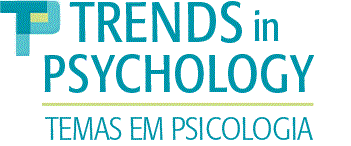Abstract
Possessing a good repertoire of interpersonal skills and a good performance when speaking in public can be considered indispensable for the social and academic adaptation of college students. The aim was to characterize and compare the social skills repertoire of college students from different fields of study (the human, exact and biological sciences) and from different higher education institutions (public and private), and to investigate the associations between these abilities and their self-assessment about speaking in public. A total of 818 college students took part, who answered the Social Skills Inventory (IHS-Del-Prette), Self-Statements During Public Speaking Scale and a Socio-demographic and Occupational Questionnaire. The groups did not differ significantly in relation to their social skills’ repertoire, with most of the participants (n = 432) having a below-average repertoire of abilities when compared to the normative group of the instrument. It was found that male college students and those who had a partner, a job or their own income, and direct contact with the public gave more positive self-assessments about speaking in public. The skills’ classes of self-exposure to strangers and new situations, self-confidence in expressing positive feelings, conversation and social resourcefulness, self-control of aggressivity, and coping and self-confidence with risk, and having a vocational course were the variables that predicted a more positive self-assessment by college students about speaking in public.
Keywords:
Social skills; public speaking; performance assessment; social interaction; college students
